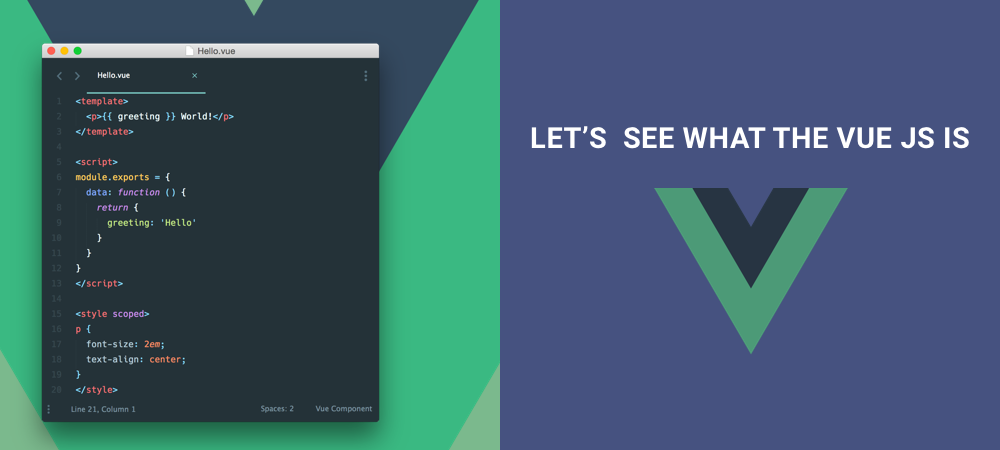Short description of the article
What is Vue.js and Vue Native?
The best Vue Native features
The most likely outcome in mobile app development
Conclusion
Not many users believed that one day, Vue.js would be an important opponent to React, but in 2018 Vue couldn’t be ignored, even Angular 6 remained in the background in terms of extensive publicity. However, we look into the future, we are preparing to begin an intense two-year battle that will be filled with a lot of hype around Vue.
Cross-platform development is an excellent choice for those people, who want to build native apps.
React – the first instrument for Building Native Apps still has big support of Facebook. But Vue.js framework does everything to satisfy peoples' needs.
Let’s see what is Vue.js and Vue Native

Vue – is the popular framework for web applications developing in JavaScript, created by Evan You in 2013. It found the golden mean between React and Angular and experienced explosive growth in the last two years, hitting the top three of the leading JS frameworks.
Unlike Angular/Google and React/Facebook, Vue is funded through donations to Patreon and developed by the community. Evan left the job at Google and started to fully devote himself to developing Vue.
Vue is easy to learn, lightweight, has nice tools, built-in routing, stealth management, etc. The Vue community, of course, is not as large as React.
After all, GeekAnts created a new JS framework – Vue Native – middle between React Native and Vue.js that will enable building mobile apps. This organized framework is oriented on view layers, so it helps to create cross-platform apps much easier because it working without Babel and allows to use HTML templates.
Also read our article: Angular 6 vs React vs Vue (Best Choice).
Look the best Vue Native features

The Vue Native framework is built on top of React Native and allows you to write native mobile applications on Vue.
Developers could use basic components and structures, so they spend less time.
Vue Native Router – a plugin that helps to use Vuex when you need to work with navigation development.
Compiling with React Native – a useful connection between React and Vue for rendering and observing of React components, as well as run Vue components.
If you need to spend less coding time, two-way binding could help to make changes in a few seconds.
Another detail – declarative rendering, which allows to write code with consistent data and to hide implementation details.
The most likely outcome in mobile app development

If you are an Angular developer who simply refuses to study Vue.js or React; Vue Native should quickly become the best option for your career, as Angular's abilities are slowly dying (Vue has a similar syntax to Angular 1).
Moreover, most JS developers should continue to think about studying Vue.js, because it has made a huge splash, and we could already see a lot of job requests Vue.js developers, which means that you can get yourself a price in the short term at least.
With the Vue Native, React users would not get something new, but many others front-end developers will find it very friendly. People could create user interfaces, a wrapper over React’s APIs. Moreover, JS developers could reuse different components (fast adaptation), use a dynamic binding feature, use equal React’s virtual DOM layout engine, etc.
Conclusion
React – the first instrument for building native apps still has big support of Facebook. But Vue.js framework does everything to satisfy peoples' needs. Unlike Angular/Google and React/Facebook, Vue is funded through donations to Patreon and developed by the community. In addition, Vue is easy to learn, lightweight, has nice tools, built-in routing, stealth management, etc.
In case, you got left any questions or suggestions, feel free to contact us and we will assist you in any inquiry!





